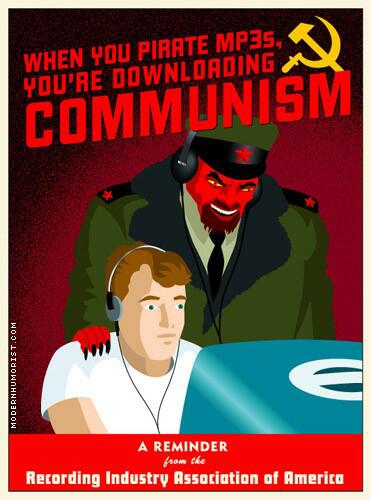A few weeks ago, my friend got a letter from a law firm in Denton, TX saying that his IP address had been identified as participating in a torrent download of Bareley Legal 6, and he was now being sued in federal court. The firm apparently got his information from his internet service provider, which had provided the list of IPs in response to a subpoena. My friend does not a have a copy of Barely Legal 6 on his hard drive*![]() and connects to the internet via a shared wireless network, so it seems likely that someone else downloaded the file, if anyone did. The mechanics of proving that he violated Hustler’s copyright seemed impossibly complex, but so did the process of hiring a lawyer and going to federal court to defend himself against charges that he stole pornography. When he asked the law firm that sent him the letter for more information, their response only reiterated the seriousness of the charges and recommended that he settle immediately. And that’s how my friend found out that he was one of over 1,000 “John Doe” defendants named in the suit.
and connects to the internet via a shared wireless network, so it seems likely that someone else downloaded the file, if anyone did. The mechanics of proving that he violated Hustler’s copyright seemed impossibly complex, but so did the process of hiring a lawyer and going to federal court to defend himself against charges that he stole pornography. When he asked the law firm that sent him the letter for more information, their response only reiterated the seriousness of the charges and recommended that he settle immediately. And that’s how my friend found out that he was one of over 1,000 “John Doe” defendants named in the suit.
Tag Archives: copyright law
Who’s making money from music piracy?

I'm not defending Stalinist Russia, but you have to admit it was a gift to future generations of graphic designers.
Gadget culture/consumer fetish pornography blog Gizmodo recently ran a fun piece about second-degree murder and six other crimes less expensive than pirating music. Obviously, you can’t go to jail for music piracy, and Gizmodo’s estimation that a year in prison is equivalent to a fine of about $50,000—the US median household income—ignores the intangible costs of spending that year married to a man named Eightball. Still, they’ve got a point. The recent finding against Jammie Thomas-Rasset—a single mother of four who shared 24 songs on Kazaa, and now has to pay Sony and other record labels $1.92 million—is laughably excessive. As usual, by “laughable,” I mean “horrifying.” I mean, come on—the woman’s name is “Jammie.” How is she not going to do whatever it takes to get the new Chamillionaire?* It turns out, though, that RIAA lawyers didn’t even have to prove Jammie downloaded any music. She almost certainly did, but the finding in the case ultimately rested on the 24 songs she had in her “Shared” folder. Whether she got them honestly or not, by making those songs available to others for download through Kazaa, Jammie violated copyright law—to the tune of $80,000 per song.

